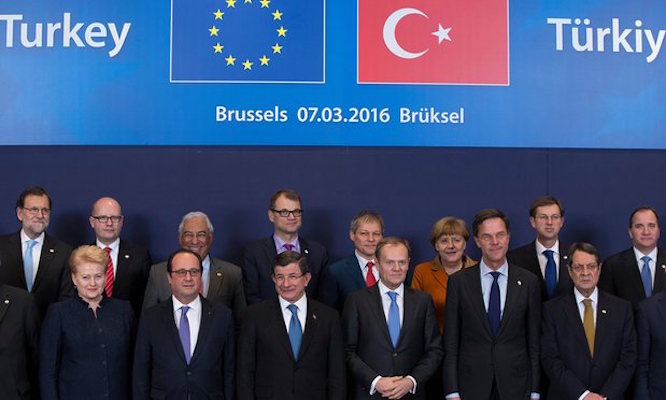By Mark Bentley
Feb 15 2018
A crisis in relations between Turkey and the United States is exposing the Achilles heel of President Recep Tayyip Erdoğan – his country’s massive current account deficit.
Short-term portfolio inflows, which Turkey relies on to finance the deficit, turned into outflows in the final two months of 2017, the latest balance of payments data show, meaning the central bank was forced to use its own foreign currency reserves to plug the gap.
Political tensions between Ankara and Washington have reached unchartered territory because of a spat over U.S. support for Kurdish militants in Syria, which led to a Turkish invasion of its neighbor last month, and a court case in the United States that exposed an alleged scheme by Turkish bankers and senior government officials to circumvent U.S. sanctions on Iran.
The drying up of capital inflows “shows the toll that foreign policy tensions are taking on the balance of payments,” said Inan Demir, an emerging markets economist at Nomura in London. “Given that the central bank reserves are not strong, it won’t be possible for the central bank to fund the external deficit if we see a renewed and protracted period of international tensions.”
Data published by the central bank on Wednesday showed that the current account deficit jumped 42 percent to $47.1 billion in 2017, equivalent to 5.6 percent of economic output, the highest among major emerging markets. The gap for December alone was $7.7 billion, the biggest number for a single month since December 2013.
Read more at https://ahvalnews.com/us-turkey/us-turkey-crisis-exposes-erdogans-achilles-heel











